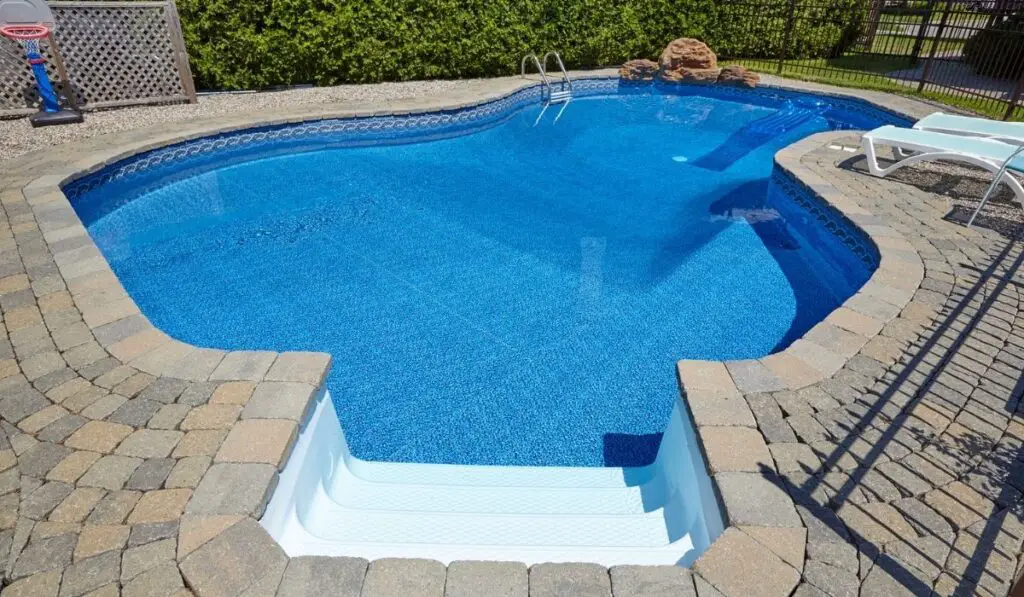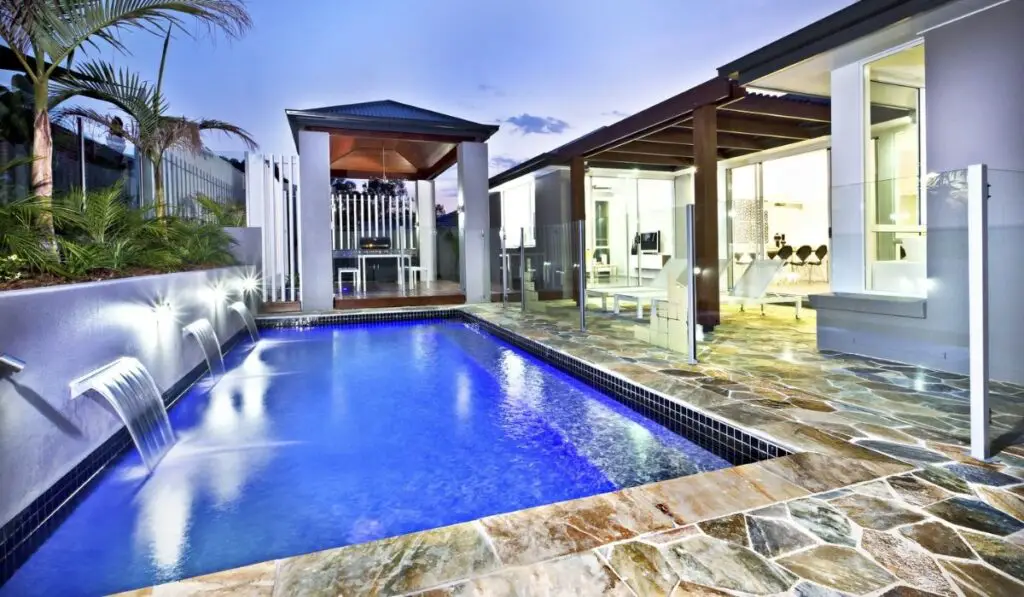Some states get more sun than others. In these warmer states, it will sound weird to mention the possibility of installing a pool heater. But colder states perceive the installation of pool heaters as a necessity. Also, pool heaters are viewed as an excellent way to extend pool season, improve the value of your pool and enjoy a great swimming experience without fear of taking a dip in freezing water. So, should you heat your swimming pool?
To enjoy a longer pool season, a swimming pool water heater is an excellent investment. While gas and electric heater or heat pumps can cost a significant amount to run (~$1k/yr), they’re more reliable than solar options. Solar pool heaters are comparatively inexpensive, but rely on the weather.
A lot of pool owners view the pool season as short-lived. Those who live in colder states will find this to be their reality and the cold temperatures can sneak up on you overnight. Now that you’ve spent a good deal of money to have that pool constructed and ready for use, do you plan to enjoy it for a miserly three months out of twelve? Trust most pool owners to say a vehement ‘no!’ to this question. Let’s look at the options open to you if you decide to install a pool heater, in addition to the maintenance costs involved.
Why is Heating Your Pool a Good Idea?

If you’re wondering why most homeowners love their pool heaters, you don’t need to look too far. Pool heaters bring the swim season around earlier and ensure it lasts longer than usual.
They don’t have to dip their toes into the water with trepidation in late spring when the cold wind makes the water chilly, they dive right into a pool of warm water!
One major factor to consider before getting a pool heater is whether you will be able to use the pool without the heater. It might even be better to have no pool than to build a pool and not be able to use it because the water is cold.
What Types of Heaters Can You Use to Heat Your Pool?
Below are the three major types of pool heaters, along with their pros and cons, to consider when you’re ready to get yourself a heater:
Gas heaters
Gas heaters use natural gas or propane as fuel to produce heat. It is the most popular and easier method to heat the pool water, but also the most expensive. Gas heaters are quick to heat the water, and effective even in cold and freezing temperatures (though the colder it it out the higher the cost will rise).
Cons:
- It is not good for the environment because it uses gas which is a fossil fuel.
- High cost of operation (easily >$1k/yr)
- Your location may determine the availability of natural gas or propane. You will need to have propane delivered or be forced to purchase a propane tank (they look a lot like those found on a gas grill). Propane tanks may affect your landscaping.
Electric heaters (heat pump designs)
Electric heaters use electricity to heat the pool water. As compared to the gas heaters, they are not only environmentally friendly but also easier on the pocket. Besides, it has been observed that electric heaters last longer than the other options. WMM Electric Pool Water Heater (On Amazon) is a good option to consider.
Cons:
- You will need a 220V electrical outlet to use a heat pump.
- It doesn’t work effectively in cold temperatures.
- Heating is not fast which demands pre-planning whenever you want to swim.
Solar heaters
Solar heaters like the SolarPRO Curve Solar Above-Ground Pool Heater (on Amazon) function with the free energy source, the sunlight. This is the most environmentally friendly option to heat the pool water. If carefully handled, solar heaters can last for decades, thus offering the best ROI.
Cons:
- You need direct sunlight. If your home doesn’t receive much sunlight, it won’t be so effective.
- It takes up a lot of space in your yard and will take attention off your landscaping.
What Type of Pool Heater is Right For You?
Ask yourself the following questions to help you pick the right swimming pool heaters:
- How would you like to heat your pool? Constantly or only when you want to enjoy some time in the pool? A gas heater is best if you are always traveling or use your pool sparingly.
- Do you want your pool to be very hot? All the types of pool heaters listed above can add 10-20 degrees to your pool. Anything higher than that can only be possible in a hot tub. Only a gas heater can heat your pool up to 30-50 degrees.
- What is the distance between the gas meter and your pool? If the distance is a long one, a heat pump might be a better option while the second-best option is a solar heater.
What Does it Cost Annually to Heat Your Pool?

What you spend to heat your pool each year depends a lot on the type of heater you chose, pool size, the temperature you like, length of the swimming season, local climate, local energy rates, and a couple of other factors. Annual costs are estimated to be about $100 – $3,600
Is It Cheaper to Keep Your Pool Heated?
No, it’s not. You can save costs by turning down the temperature or turning the heater off if you won’t be using the pool for many days. This practice saves money and energy.
Some people say heating a pool back up to the desired temperature consumes more energy than when you lower the temperature or turn off the heater. This is not true, just a destructive myth!
How Can You Save Money When Heating Your Pool?
If you are looking for ways to reduce your energy bill and save some money from your monthly heating bill, take a look at the suggestions below:
- Get a solar blanket (it cuts your energy bill by 50%)
- Bring the temperature down (you can save $40 monthly every 2 degrees)
- Get a heat pump (this saves 40% on the energy bill)
How Long Will A Pool Heater Last?
If you are willing to invest in a quality heating unit, you can get a pool heater that will stand the test of time. You can get up to 20 years out of a good heater if you are careful and take maintenance seriously.
Some pool heaters have served their owners for up to 30 years and more.
